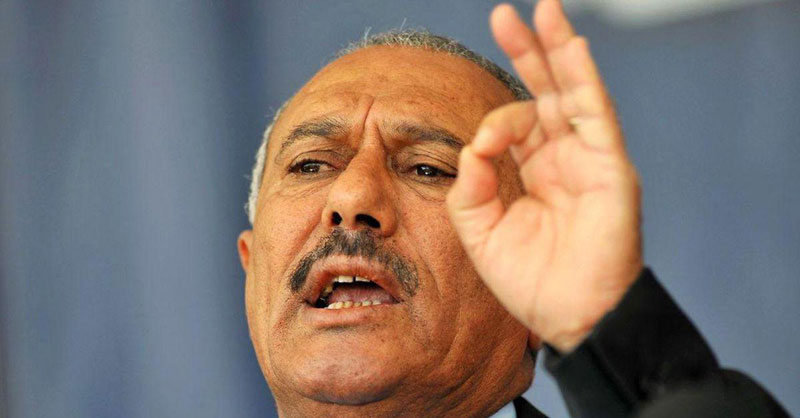Ikebesi Omoding
Yemen’s Saleh: ‘Dancing on the head of a snake’
In the last one or so months, two dictators from different sides of the globe have had varied experiences, possibly commensurate with their infamous leaderships. One was African; the other Arab.
The African, Zimbabwe’s Robert Mugabe, used to quip that African presidents would declare time limits, then when the time arrived, they realized that they had been in power for what seemed to be a mere two weeks: and so they would fidget to extend their ruler ships.
Mugabe ruled Zimbabwe for37 unbroken years since from its independence. Until three weeks ago, when the people who had helped put in power, had enough and shoved him out in a “cool coup”.
The Arab, Yemen’s Ali Abdullah Saleh, ruled for 30 years, from the time when Yemen was two countries of North and South. Then, five years ago, there was an uprising following the “Arab Spring” in which he was pushed out of power. Still unsatisfied with his tenancy, Saleh sponsored a tribal Houthi rebellion against his successor, Abdurab Mansour Hadhi, in an attempt to wrest back power.
The result is a Yemen that is in the throes of disaster: with more than ten thousand people killed; a famine that has been caused by a Saudi Arabian blockade; and, a resultant cholera that is ravaging the country, especially the children, in a teribble t humanitarian crisis.
Like his fellow Arab leader, Bashar al Assad, in Syria, who has occasioned the utter ruin of his country by sticking to power, Saleh did not care about the suffering of “his” people.
In fact, he used to say that, ruling Yemen was like “dancing on the head of a snake”. This presumably meant that in his steps, he was adept at skipping on the head of the snake without it being able to skirt his feet, rear its head round and strike him.
Until four days ago, when his “dance” steps misfired. He had suggested that the Houthis were now ready to come to a negotiating table with the Saudi-led coalition to end the civil war. No doubt Saleh must have been calculating that by apparently switching sides, he would have been able to out-manouvre his rival, Hadhi, currently the internationally recognized Yemeni leader.
The Houthis, who had all along supported Saleh, considered him a sell-out to their crusade, in the fight to wrest power from Hadhi, and assassinated him. The body of the adept “dancer” was being carted in the back of a pick-up vehicle to show all the Houthis in the part of Sanaa, of what befalls this kind of perfidy.
In both of these cases, the people who got rid of the dictator were his former allies; in Yemen, the Houthis whom Saleh had all along relied on to return him to power. In Zimbabwe, the Zimbabwe African National Union-Patriotic Front (ZANU-PF) freedom fighter war veterans, who had got fed up with Mugabe’s wife, Grace, maneuvering to succeed her 93 year-old nonagenarian.
This was after Mugabe had fired his Number Two (in all ways from the time of the liberation struggle against the British Colonialists), Emmerson Mnangagwa, This is the man who eventually masterminded Mugabe’s ouster in a magnanimous coup.
Therein lies the difference between Saleh and Mugabe. The Houthi rebel group could not have given Saleh a soft-landing because there was nowhere for him in the Yemeni desert. Besides, had Saleh’s adventure succeeded, the most likelihood would have been that he would have “sold” his Iranian-backed Houthi colleagues to Hadhi of the Saudi coalition.
Anything could have happened to them thereafter. In this way the Houthis are hoping to survive to fight for another day irrespective of the suffering they have brought on their people. The likelihood now is that, Hadhi and his Saudi backers are going to withdraw from any attempt to “negotiate”, negating Saleh’s manouever.
Mugabe is luckier. His former “comrades in the struggle” have been magnanimous and even donated a “retirement package” of ten million Unites States cash dollars, in a country where this is the currency of choice as the Zimbabwean dollar is useless; and the people are starving for lack of disposable currency.
The wonder then is: both Saleh and Mugabe had ruled for three, or more, decades; what more was there left for them to contribute to their countries? In effect, both had brought suffering on their peoples; and for Saleh, he could have gone off to a retirement elsewhere.
For Mugabe, his good fortune was the absence of the head of a snake on which to dance on; but that luck is likely not replicate-able elsewhere in a Continent of disillusionment and broken promises.
szumuz@yahoo.com
Comments


















